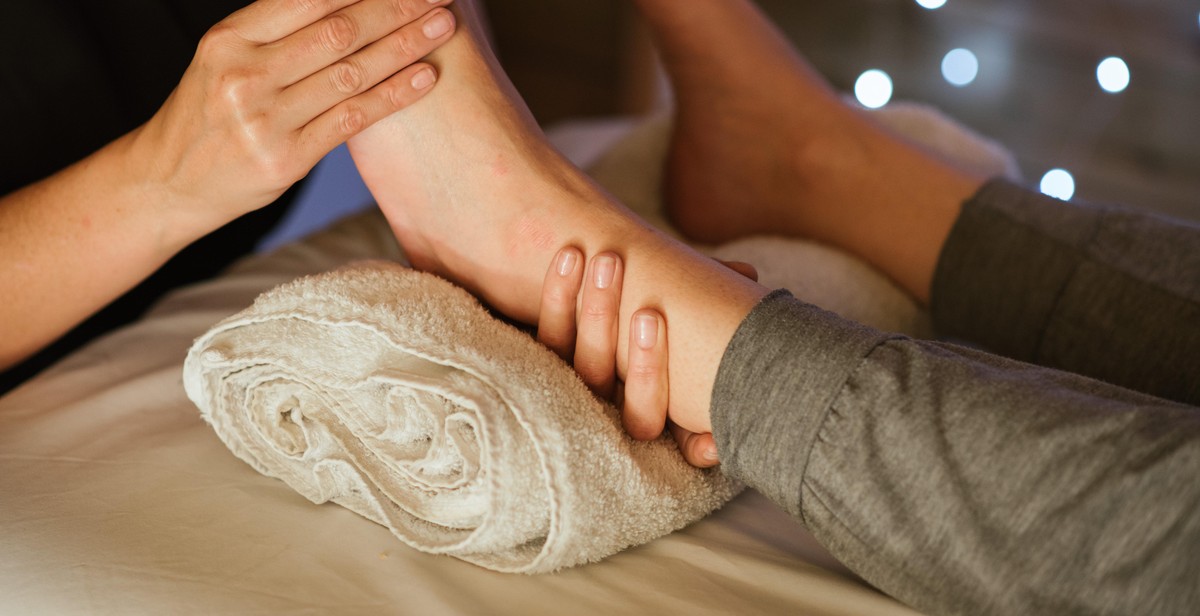Introduction: Coping with Stress
Stress is a common experience that affects everyone at some point in their life. It can be caused by various factors such as work, relationships, finances, and health issues. While stress is a natural response to challenging situations, excessive and prolonged stress can have negative effects on our physical and mental health.
Coping with stress is essential to maintain our overall well-being and quality of life. It involves adopting strategies and techniques that help us manage and reduce the impact of stress on our body and mind. There are several scientifically-proven methods that can help us cope with stress effectively.
Why Coping with Stress is Important
Stress can have a significant impact on our health and happiness. Chronic stress can lead to various health problems such as high blood pressure, heart disease, diabetes, and depression. It can also affect our cognitive function, memory, and decision-making abilities.
By coping with stress, we can reduce the risk of developing these health problems and improve our overall well-being. Coping with stress can also help us feel more in control of our lives, improve our relationships, and enhance our productivity and performance at work or school.
In this article, we will explore some of the scientifically-proven methods for coping with stress that you can incorporate into your daily life to improve your mental and physical health.

Identifying the Causes of Stress
Stress is a common experience in daily life, and everyone experiences it differently. Stress can be caused by a variety of factors that can be both internal and external. Understanding the sources of stress in daily life is crucial to identifying and coping with stress triggers.
Sources of Stress in Daily Life
Stress can come from a variety of sources, including work, relationships, finances, health, and major life changes. Work-related stress can be caused by long hours, unreasonable deadlines, and a lack of control over one’s work environment. Relationship stress can be caused by conflicts with family, friends, or romantic partners. Financial stress can be caused by debt, job loss, or unexpected expenses. Health-related stress can be caused by chronic illness, injury, or disability. Major life changes, such as moving, divorce, or the death of a loved one, can also be significant sources of stress.
Recognizing Stress Triggers
Recognizing stress triggers is essential to coping with stress effectively. Stress triggers can be both internal and external and can vary from person to person. Some common external stress triggers include work deadlines, traffic, and conflicts with others. Internal stress triggers can include negative self-talk, unrealistic expectations, and perfectionism.
One effective way to recognize stress triggers is to keep a stress diary. This can involve writing down stressful events, thoughts, and feelings throughout the day. By identifying patterns and triggers, individuals can develop strategies to cope with stress more effectively.
| External Stress Triggers | Internal Stress Triggers |
|---|---|
| Work deadlines | Negative self-talk |
| Traffic | Unrealistic expectations |
| Conflicts with others | Perfectionism |
Overall, identifying the causes of stress and recognizing stress triggers are essential steps in coping with stress effectively. By understanding the sources of stress in daily life and developing strategies to manage stress triggers, individuals can reduce the negative impact of stress on their physical and mental health.

Scientifically-Proven Methods for Coping with Stress
Stress is a natural part of life, but it can become overwhelming if left unchecked. Fortunately, there are scientifically-proven methods for coping with stress that can help you manage the challenges of daily life. Here are some effective techniques:
Meditation and Mindfulness
Meditation and mindfulness are popular stress-reduction techniques that have been used for centuries. These practices involve focusing on the present moment and quieting the mind. Research has shown that regular meditation can reduce stress, anxiety, and depression, and improve overall well-being.
Deep Breathing Techniques
Deep breathing techniques are another effective way to reduce stress. These techniques involve taking slow, deep breaths and exhaling slowly to calm the body and mind. Research has shown that deep breathing can lower blood pressure, reduce stress hormones, and promote relaxation.
Progressive Muscle Relaxation
Progressive muscle relaxation is a technique that involves tensing and relaxing different muscle groups in the body. This technique can help you become more aware of the physical sensations of stress and tension, and learn to release them. Research has shown that progressive muscle relaxation can reduce stress, anxiety, and depression.
Exercise and Physical Activity
Exercise and physical activity are excellent ways to cope with stress. Regular exercise can help reduce stress hormones, improve mood, and promote overall physical health. Whether it’s a brisk walk, yoga class, or weightlifting session, find an activity that you enjoy and make it a regular part of your routine.
Social Support Networks
Social support networks are crucial for coping with stress. Talking to friends, family members, or a therapist can help you process difficult emotions and find solutions to stressful situations. Research has shown that social support can reduce the negative effects of stress and improve overall well-being.
Cognitive Behavioral Therapy (CBT)
Cognitive Behavioral Therapy (CBT) is a type of therapy that focuses on changing negative thought patterns and behaviors. This approach can help you identify and challenge negative thoughts that contribute to stress and learn new coping strategies. Research has shown that CBT can be an effective treatment for stress, anxiety, and depression.
| Method | Benefits |
|---|---|
| Meditation and Mindfulness | Reduce stress, anxiety, and depression; improve overall well-being |
| Deep Breathing Techniques | Lower blood pressure, reduce stress hormones, and promote relaxation |
| Progressive Muscle Relaxation | Reduce stress, anxiety, and depression |
| Exercise and Physical Activity | Reduce stress hormones, improve mood, and promote overall physical health |
| Social Support Networks | Reduce the negative effects of stress and improve overall well-being |
| Cognitive Behavioral Therapy (CBT) | Identify and challenge negative thoughts, learn new coping strategies |
Overall, there are many scientifically-proven methods for coping with stress. Whether it’s meditation, deep breathing, exercise, or social support, find the techniques that work best for you and make them a regular part of your routine.

Making Lifestyle Changes to Reduce Stress
Stress is an inevitable part of life. However, there are several lifestyle changes one can make to reduce stress levels and promote a healthier lifestyle. Here are some scientifically-proven methods:
Getting Enough Sleep
A good night’s sleep is essential to reduce stress levels. When we are sleep-deprived, our bodies produce more stress hormones, making it difficult to cope with stressful situations. It is recommended that adults get 7-9 hours of sleep every night. Establishing a regular sleep schedule, avoiding caffeine and alcohol before bedtime, and creating a comfortable sleep environment can all contribute to better sleep quality.
Eating a Healthy Diet
The food we eat affects our mood, energy levels, and overall well-being. Eating a healthy diet rich in fruits, vegetables, whole grains, and lean protein can help reduce stress levels. Avoiding processed foods, sugary snacks, and excessive amounts of caffeine and alcohol can also help regulate stress hormones. Additionally, staying hydrated by drinking plenty of water can also contribute to stress reduction.
Reducing Caffeine and Alcohol Intake
Caffeine and alcohol can both increase stress levels in the body. While caffeine may give us a temporary boost of energy, excessive amounts can lead to increased heart rate and anxiety. Similarly, while alcohol may provide temporary relief from stress, it can disrupt sleep patterns and lead to increased feelings of anxiety and depression. Reducing caffeine and alcohol intake can help regulate stress hormones and promote better sleep quality.
Time Management and Prioritization
Feeling overwhelmed and overworked can contribute to increased stress levels. Taking time to prioritize tasks and manage time effectively can help reduce stress and increase productivity. Creating a to-do list, breaking tasks into smaller manageable chunks, and delegating tasks when necessary can all contribute to stress reduction. Additionally, taking breaks and engaging in stress-reducing activities such as exercise, meditation, or hobbies can help promote a healthier work-life balance.
Conclusion
By implementing these lifestyle changes, individuals can reduce stress levels and promote a healthier lifestyle. While stress is an inevitable part of life, taking steps to manage stress can lead to increased well-being, productivity, and overall quality of life.

Conclusion
Stress is an inevitable part of life, but it doesn’t have to control us. There are scientifically-proven methods that we can use to manage and cope with stress. By incorporating these techniques into our daily routines, we can reduce the negative impact that stress has on our physical and mental health.
Summary of Scientifically-Proven Methods for Coping with Stress
| Technique | Description |
|---|---|
| Deep Breathing | Focusing on your breath and taking slow, deep breaths can help reduce stress and anxiety. |
| Meditation | Meditation involves focusing your mind on a specific object or thought to promote relaxation and reduce stress. |
| Exercise | Regular physical activity can help reduce stress and improve overall health. |
| Social Support | Having a strong support system of friends and family can help reduce stress and promote emotional well-being. |
| Time Management | Learning to manage your time effectively can help reduce stress and increase productivity. |
Remember, coping with stress is a process that takes time and effort. It’s important to be patient with yourself and to practice self-care regularly. By implementing these scientifically-proven methods into your daily routine, you can take control of your stress and live a healthier, happier life.
